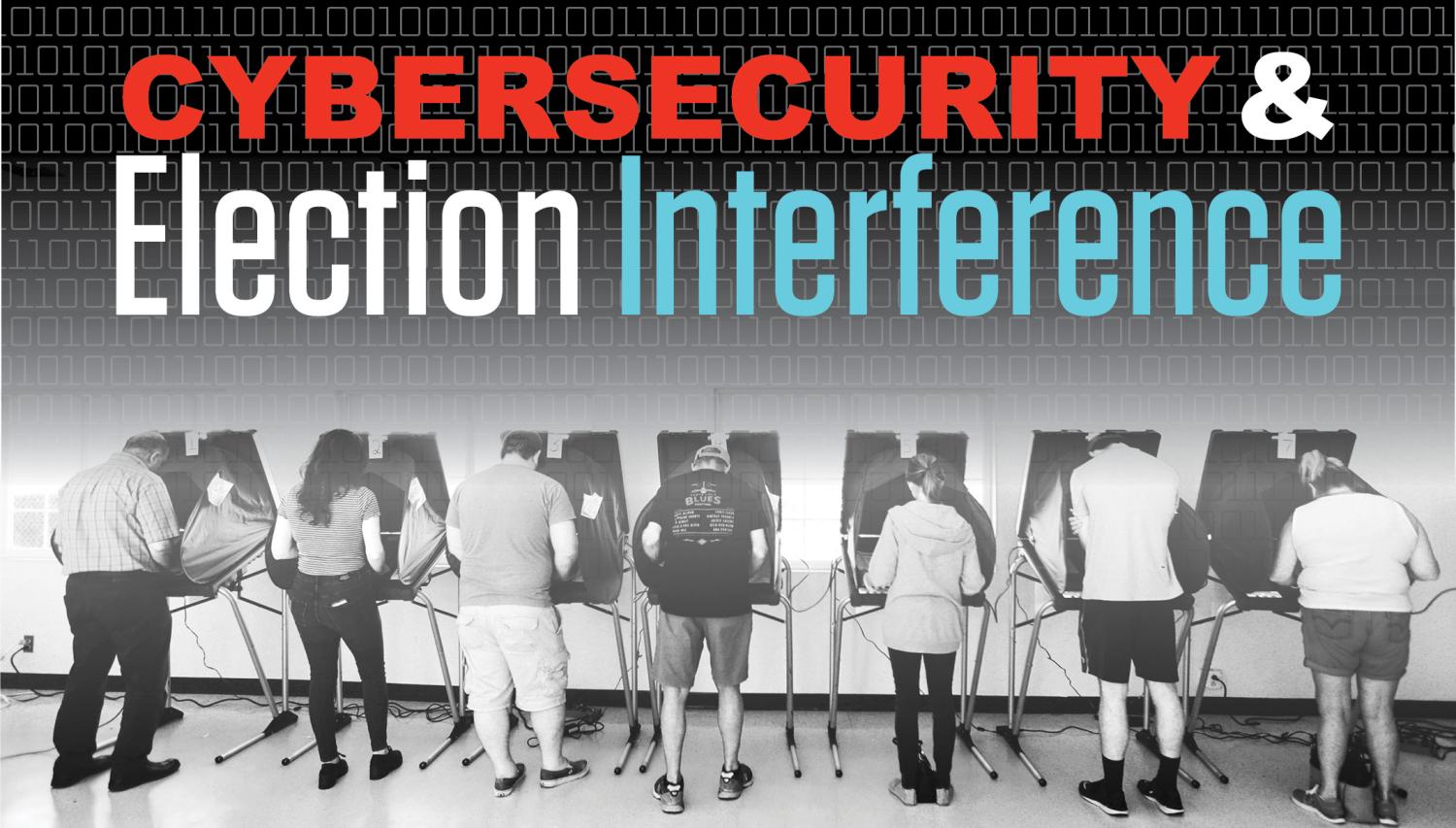This post is part of “Cybersecurity and Election Interference,” a Brookings series that explores digital threats to American democracy, cybersecurity risks in elections, and ways to mitigate possible problems.
 Election security has been a topic of considerable discussion given foreign interference in recent elections. A U.S. Intelligence Committee report found that Russia gained illegal entry into numerous voter registration data bases in the American states. In addition, Special Counsel Robert Mueller warned in testimony before Congress that Russia represented a major threat leading into the 2020 elections.
Election security has been a topic of considerable discussion given foreign interference in recent elections. A U.S. Intelligence Committee report found that Russia gained illegal entry into numerous voter registration data bases in the American states. In addition, Special Counsel Robert Mueller warned in testimony before Congress that Russia represented a major threat leading into the 2020 elections.
Despite these concerns, the U.S. Senate has not enacted any election security legislation. There has been no vote on a bill already passed by the U.S. House, and Senate Majority Leader Mitch McConnell (R-Ky.) has indicated having such a vote is a non-starter for him. So far, he has delivered on that sentiment and no Senate votes on campaign security have taken place or been scheduled.
To examine attitudes toward election security, researchers at the Brookings Institution undertook an online U.S. national poll with 2,000 adult internet users between August 6 to 8, 2019. The survey was overseen by Darrell M. West, vice president of Governance Studies and director of the Center for Technology Innovation at the Brookings Institution. Responses were weighted using gender, age, and region to match the demographics of the national internet population as estimated by the U.S. Census Bureau’s Current Population Survey.
Concern over foreign interference
People are divided in their views of the 2020 foreign threat. Thirty-four percent say foreign campaign interference represents very much of a threat to American democracy, 23 percent see it as somewhat of a threat, 26 percent that it is not very much of a threat, and 17 percent are unsure. When asked how worried they are about interference in 2020, 28 percent say they are very worried, 19 percent are somewhat worried, 35 percent are not very worried, and 18 percent are unsure.
Support for election security action
In spite of the varying opinions about the foreign threat, many Americans want Congress to take meaningful action. Fifty-eight percent believe the U.S. government should provide additional funding to the states to help them upgrade the security of their election equipment, 19 percent do not, and 23 percent are unsure. Sixty percent also think the U.S. government should offer additional technical expertise to the states to help them upgrade their electoral machines, 17 percent do not, and 23 percent are unsure.
When asked if they thought the state where they lived was doing enough to protect voting machines from foreign interference, 32 percent said yes, 29 percent indicated no, and 39 percent were unsure. That suggests major geographic variations in how individuals see the threat in their home states.
But a number of people also look beyond government to solve interference problems. When asked about the role of the private sector, 54 percent want major technology firms to do more to fight foreign campaign interference, 17 percent do not, and 29 percent are unsure. Many people see disinformation emanating from social media platforms and expect those firms to be more effective in policing their own sites.
Russia is greatest country of concern
Befitting the negative publicity it has gotten in the last few years, Russia is viewed as the nation representing the greatest threat of campaign interference. When asked which country concerned them the most in terms of interfering with the 2020 election, 45 percent named Russia, 14 percent named China, 2 percent cited Saudi Arabia, 2 percent claimed it would be Iran, and 37 percent were unsure.
When we asked in what way foreign countries are likely to attempt to influence the 2020 election, 49 percent said foreign countries would spread false information, 14 percent believed they would break into election databases, 5 percent thought they would hack emails, and 32 percent were unsure.
The latter numbers are interesting because they suggest people believe interference in 2020 will follow a similar formula to what was seen in 2016 as opposed to people thinking foreign countries would add new tactics to their disruption arsenals
Which party is doing more to fight foreign interference?
We wanted to see how Americans viewed the two parties’ efforts to fight foreign interference. Twenty-nine percent say Democrats are doing more, 16 percent think Republicans are, 25 percent believe neither party is doing much, and 30 percent are unsure.
Concern about foreign interference is moving a number of people to say they are more likely to vote in 2020. When asked about the impact on their vote, 28 percent say concern over foreign interference will make them more likely to vote, 3 percent say it will make them less likely to vote, 50 percent say it will have no impact on their likelihood of voting, and 19 percent are unsure.
Survey methodology
This online survey polled 2,000 adult internet users in the United States August 6 to 8, 2019 through the Google Surveys platform. Responses were weighted using gender, age, and region to match the demographics of the national internet population as estimated by the U.S. Census Bureau’s Current Population Survey.
In the 2012 presidential election, Google Surveys was the second most accurate poll of national surveys as judged by polling expert Nate Silver. In addition, the Pew Research Center undertook a detailed assessment of Google Surveys and found them generally to be representative of the demographic profile of national internet users. In comparing Google Survey results to its own telephone polls on 43 different substantive issues, Pew researchers found a median difference of about three percentage points between Google online surveys and Pew telephone polls. A 2016 analysis of Google Surveys published in the peer-reviewed methodology journal Political Analysis by political scientists at Rice University replicated a number of research results and concluded “GCS [Google Consumer Surveys] is likely to be a useful platform for survey experimentalists.” Google’s 2019 analysis of its surveys found similar results to Pew Research Center polls.
This research was made possible by Google Surveys, which donated use of its online survey platform. The questions and findings are solely those of the researchers and not influenced by any donation. For more detailed information on the methodology, see the Google Surveys Whitepaper.
The Brookings Institution is committed to quality, independence, and impact.
We are supported by a diverse array of funders. In line with our values and policies, each Brookings publication represents the sole views of its author(s).






Commentary
Americans want federal action on election security ahead of 2020, per new Brookings survey
August 20, 2019